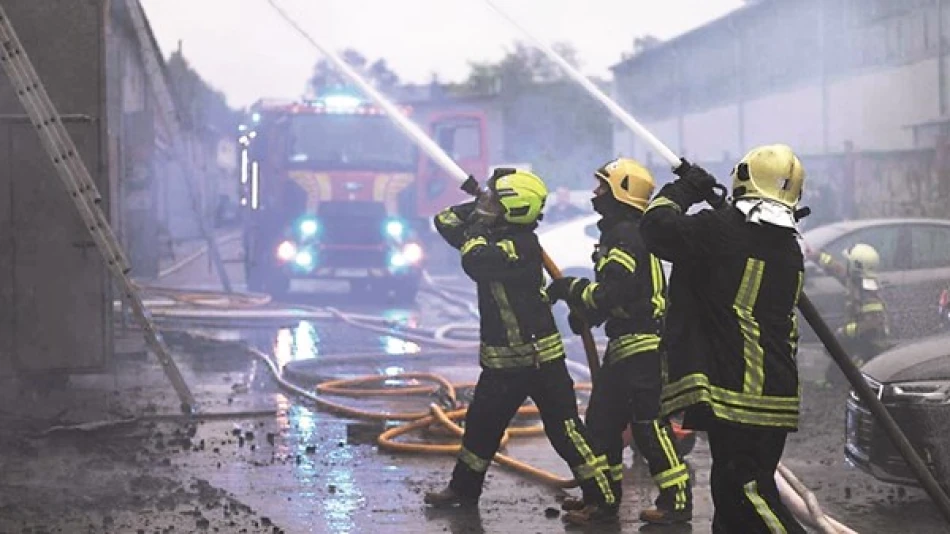
Russian Military Thwarts Drone Attack in Defensive Maneuver
Russia Claims Downing 61 Ukrainian Drones in Major Overnight Air Defense Operation
Russian air defense systems intercepted and destroyed 61 Ukrainian drones across multiple southwestern regions during a single night, according to Moscow's Defense Ministry—marking one of the largest reported drone intercept operations since the conflict began and highlighting the escalating aerial warfare dimension of the Russia-Ukraine war.
Escalating Drone Warfare Reaches New Heights
The Russian Defense Ministry's Monday statement represents a significant spike in reported drone activity, with the 61 intercepted aircraft far exceeding typical nightly totals. The drones targeted southwestern Russian regions, areas that have increasingly become focal points for Ukrainian aerial operations as Kyiv extends its reach deeper into Russian territory.
This surge in drone warfare reflects a fundamental shift in modern conflict dynamics. Unlike traditional air campaigns relying on expensive manned aircraft, both sides have embraced unmanned systems that offer cost-effective strike capabilities with reduced risk to personnel.
Strategic Implications for Regional Security
Expanding Theater of Operations
The targeting of southwestern Russian regions signals Ukraine's growing capability to project force beyond immediate border areas. This geographic expansion of operations mirrors tactics seen in other modern conflicts, where smaller nations have used asymmetric warfare to challenge larger adversaries.
The scale of the reported intercept operation suggests either a coordinated Ukrainian offensive or improved Russian detection capabilities—possibly both. Such numbers indicate sophisticated planning and resource allocation on Ukraine's part, while Russia's claimed success rate demonstrates significant investment in air defense infrastructure.
Technology Arms Race Intensifies
The drone warfare escalation parallels developments in other global conflict zones, from the Middle East to the South China Sea, where unmanned systems have revolutionized military strategy. Russia's emphasis on publicizing successful intercepts serves dual purposes: demonstrating defensive capabilities while potentially deterring future attacks.
This technological competition extends beyond the immediate conflict, as both nations develop and refine systems that will likely influence global defense markets and military doctrines for years to come.
Broader Conflict Evolution
The reported intercept operation underscores how the Russia-Ukraine conflict continues evolving beyond conventional ground warfare. As both sides adapt their strategies, drone operations have become increasingly central to military planning, offering relatively low-cost methods to achieve strategic objectives while testing enemy defenses.
The frequency and scale of such operations suggest this aerial dimension will remain a defining characteristic of the conflict, with implications extending far beyond the immediate theater to influence how nations worldwide approach air defense and unmanned warfare capabilities.
Most Viewed News

 Layla Al Mansoori
Layla Al Mansoori






